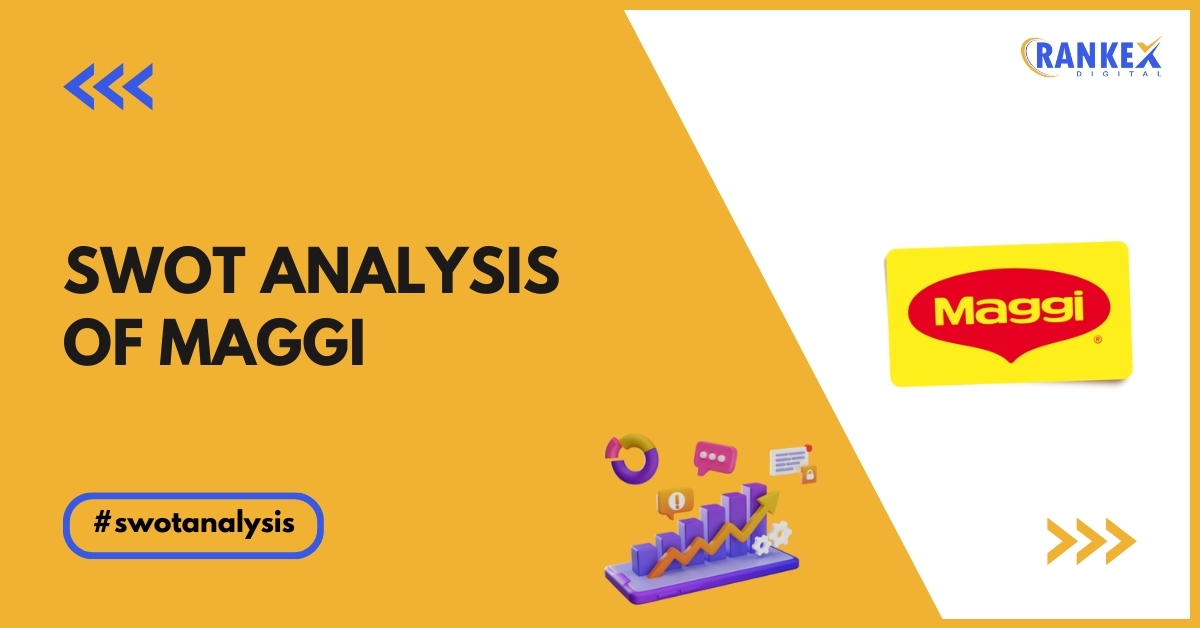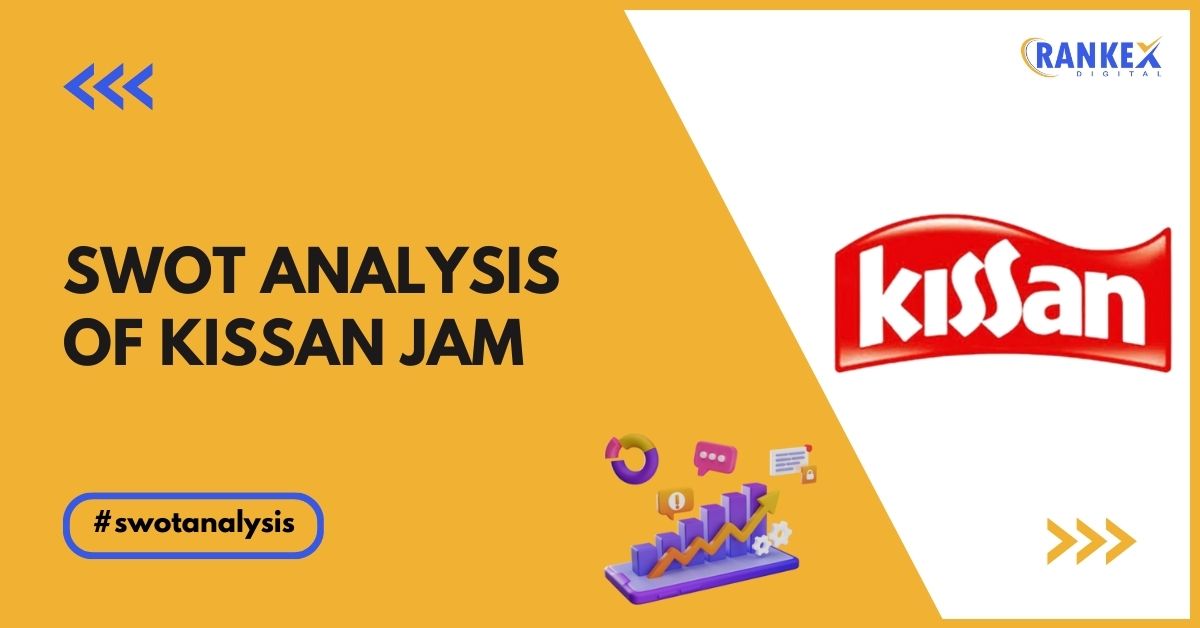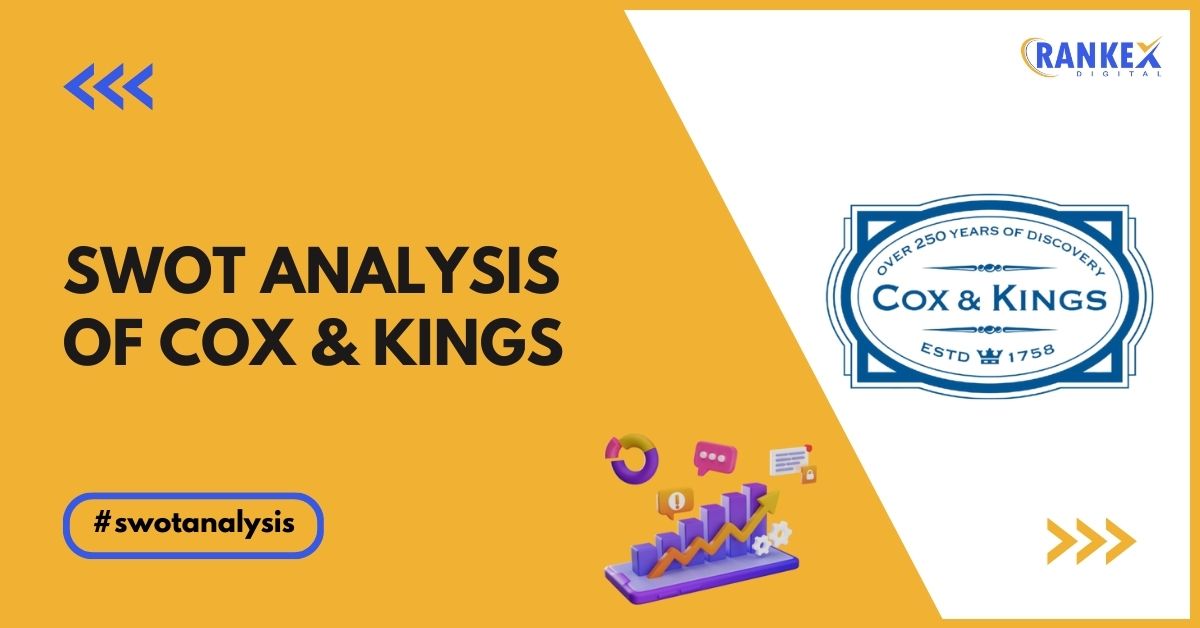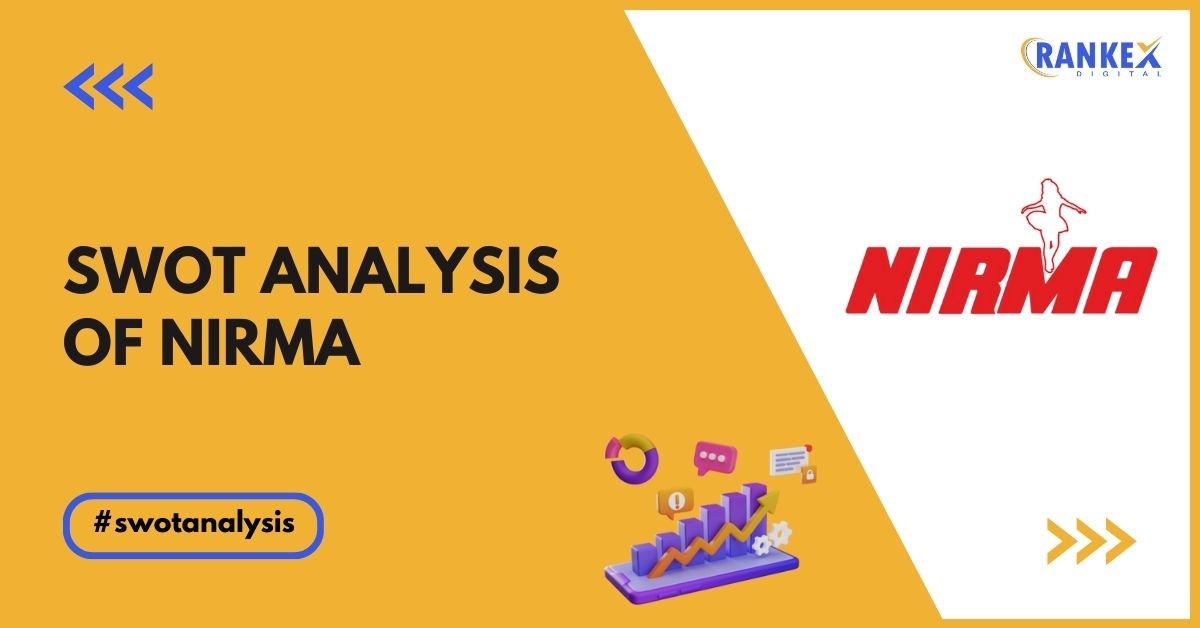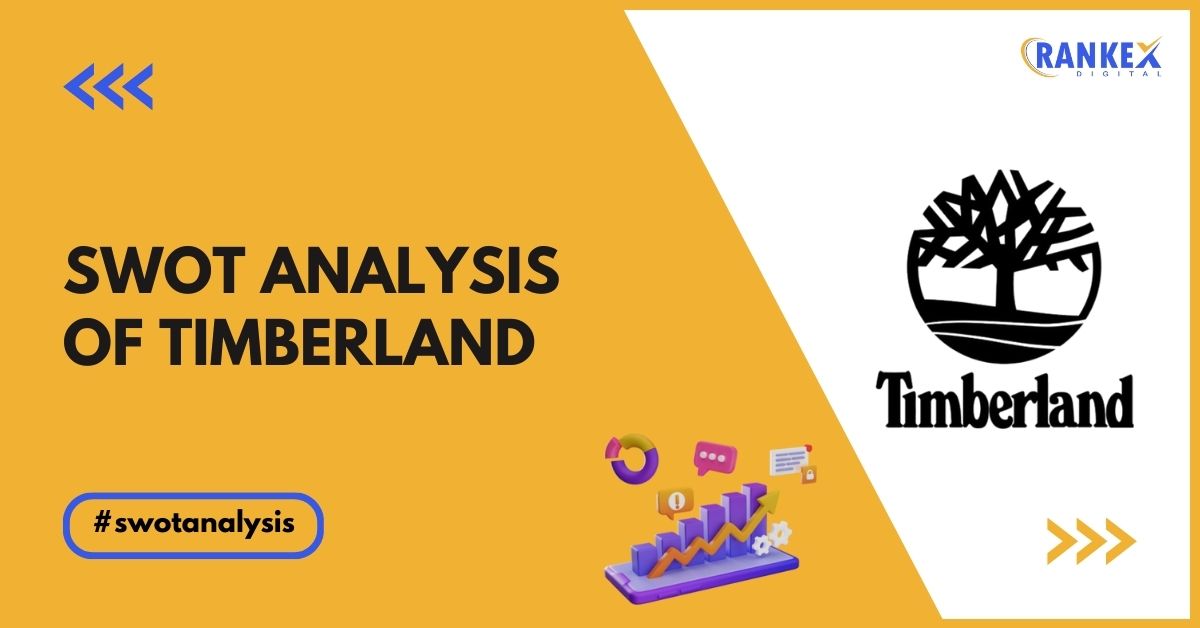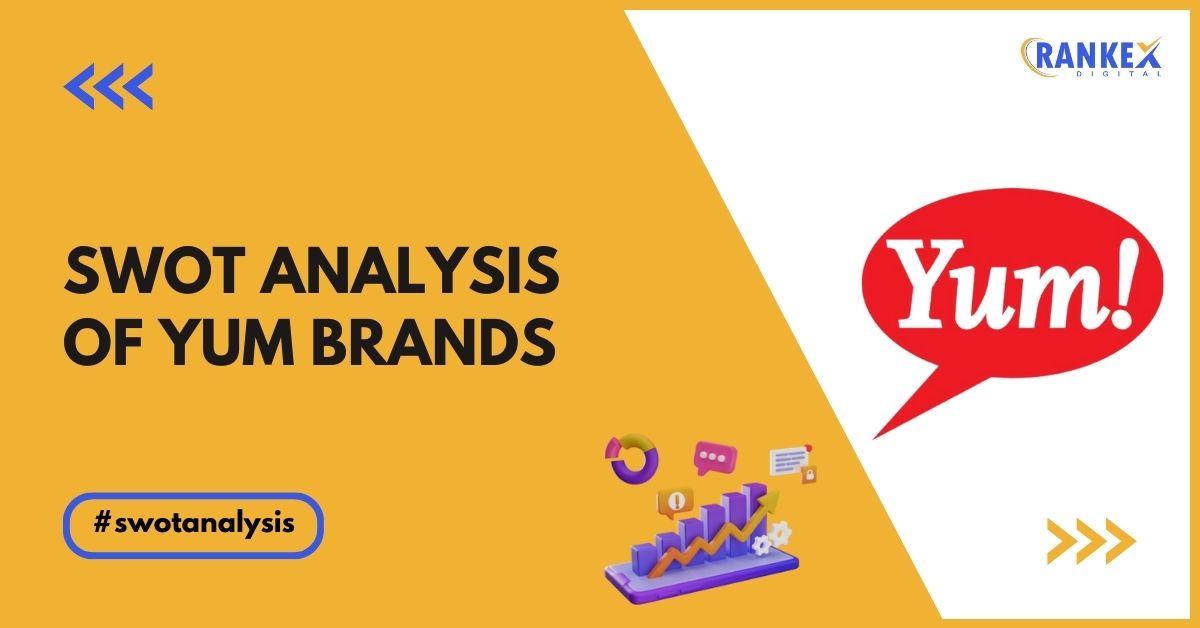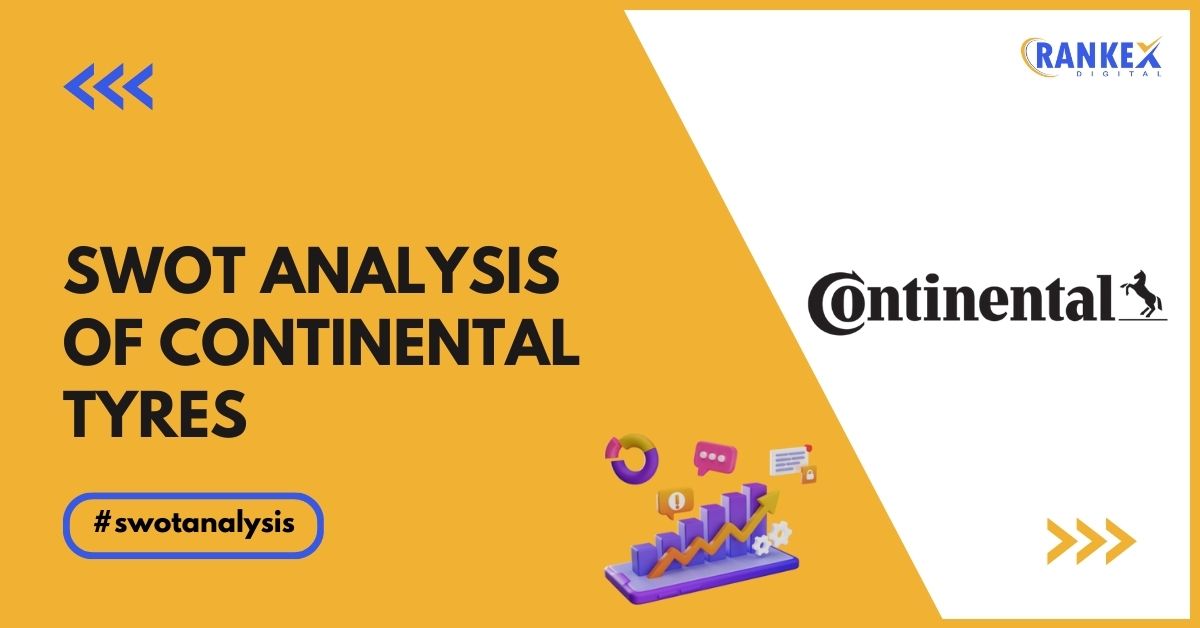Maggi, a household name in India, has become synonymous with instant noodles and quick meals. Launched in 1983, this brand has evolved significantly over the years, securing a prominent position in the Indian food industry.
Understanding the strengths, weaknesses, opportunities, and threats (SWOT) of Maggi is crucial for analyzing its current market position and strategizing for future growth.
This article provides an in-depth SWOT analysis of Maggi, exploring its key attributes and competitive landscape.
Table of Contents
Overview of Maggi
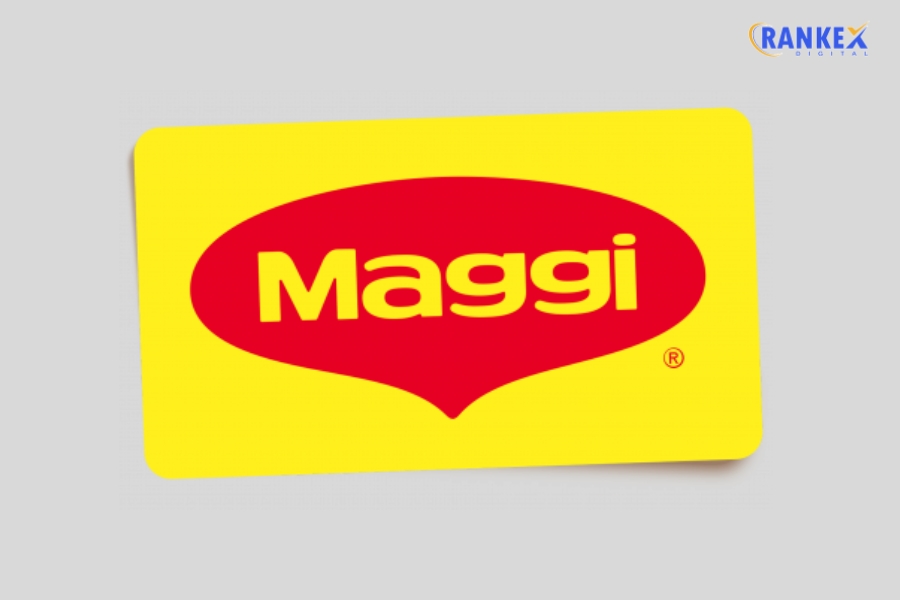
Maggi, originally created by the Swiss company Maggi, was acquired by Nestlé in 1947. The brand gained immense popularity in India, particularly in the 1990s, due to its convenience, affordability, and taste. Maggi offers a wide range of products, including instant noodles, soups, sauces, and seasonings, catering to various consumer preferences.
Quick Stats About Maggi
| Attribute | Details |
|---|---|
| Parent Company | Nestlé |
| Year Launched in India | 1983 |
| Product Range | Instant noodles, soups, sauces, and seasonings |
| Market Position | Leader in the instant noodle segment in India |
| Brand Recognition | Iconic, with significant cultural impact |
Current News About Maggi
- Product Diversification: Maggi has been expanding its product line by introducing healthier options, such as whole wheat noodles and noodles fortified with vitamins.
- Sustainability Initiatives: The brand is focusing on sustainable sourcing and packaging, aligning with the global push for environmental responsibility.
- Digital Marketing Campaigns: Maggi has ramped up its digital marketing efforts, engaging younger audiences through social media and influencer collaborations.
- Crisis Recovery: After facing a major food safety scandal in 2015, Maggi has successfully rebuilt its reputation and regained consumer trust.
SWOT Analysis of Maggi
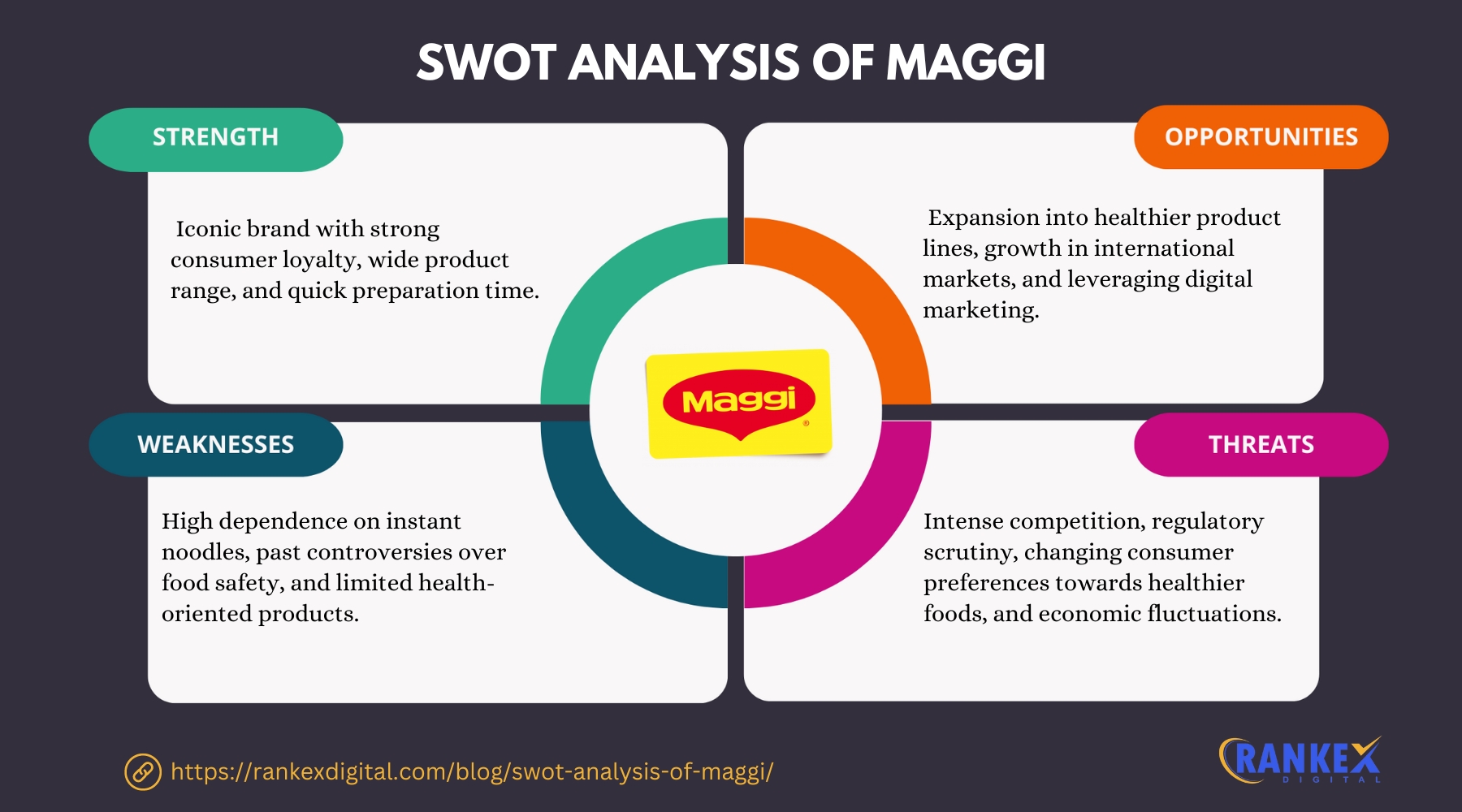
Strengths of Maggi
- Strong Brand Recognition: Maggi has established itself as a household name in India since its introduction in the early 1980s. Its catchy jingles and memorable advertising campaigns have solidified its presence in the minds of consumers, creating a sense of nostalgia and trust. This recognition leads to high brand loyalty, making it the go-to choice for instant noodles.
- Wide Product Range: Beyond instant noodles, Maggi offers a diverse range of products including soups, sauces, and seasoning. This variety allows it to cater to different tastes and dietary preferences, increasing its market reach. New product innovations, like the introduction of healthier options, help maintain consumer interest and cater to evolving preferences.
- Convenience: Maggi’s instant noodles are synonymous with quick meal solutions. They are easy to prepare and require minimal cooking skills, making them a popular choice among busy professionals, students, and families. This convenience factor is crucial for its target market, especially in urban settings where time is often limited.
- Distribution Network: Leveraging Nestlé’s extensive distribution capabilities, Maggi products are readily available across various retail formats, from large supermarkets to small local shops. This wide availability ensures that the brand can reach both urban and rural consumers effectively, enhancing market penetration.
Weaknesses of Maggi
- Health Concerns: Despite its popularity, Maggi has been criticized for its nutritional content, particularly the high sodium and preservative levels in its instant noodles. This has raised concerns among health-conscious consumers, leading to a perception of Maggi as an unhealthy food option.
- Dependency on Instant Noodles: A significant portion of Maggi’s revenue is derived from its noodle products, making the brand vulnerable to market shifts. As consumer preferences lean towards healthier, fresher options, Maggi’s heavy reliance on this single category could threaten its growth if it does not diversify effectively.
- Past Controversies: The 2015 food safety scandal, which led to a nationwide ban on Maggi noodles over alleged unsafe levels of lead and MSG, severely impacted consumer trust and brand reputation. Although the brand has worked to rebuild its image, the incident serves as a cautionary tale about the long-lasting effects of quality issues.
Opportunities for Maggi
- Health-Conscious Trends: With a growing awareness of nutrition and health, Maggi can capitalize on this trend by developing healthier product lines, such as whole grain or low-sodium noodles, and promoting them effectively. Collaborations with nutritionists and health influencers could also enhance credibility.
- Expansion into New Markets: There are substantial opportunities for Maggi to enter new international markets, especially in regions with a growing middle class that is becoming familiar with instant noodles. Tailoring products to local tastes and preferences could further enhance its appeal.
- Innovative Marketing Strategies: By adopting modern marketing tactics, such as leveraging social media platforms, influencer collaborations, and user-generated content, Maggi can engage younger audiences more effectively. Innovative campaigns that resonate with cultural trends can enhance brand loyalty.
- Sustainability Initiatives: Implementing sustainable sourcing practices and eco-friendly packaging can appeal to environmentally conscious consumers. By promoting these initiatives, Maggi can enhance its brand image and attract a segment of the market that prioritizes sustainability.
Threats to Maggi
- Intense Competition: The instant noodle market in India is crowded, with various local and international players competing for market share. Brands such as Yippee, Nissin, and local players have introduced products that challenge Maggi’s dominance, necessitating constant innovation and differentiation.
- Changing Consumer Preferences: As health trends evolve, consumers are increasingly seeking nutritious and wholesome food options. Maggi must be proactive in reformulating existing products or introducing new offerings to keep pace with these shifts.
- Regulatory Challenges: Stricter food safety regulations and increased scrutiny on nutritional labeling could impose additional operational challenges for Maggi. Compliance with these regulations may necessitate changes in production processes, potentially increasing costs.
- Economic Factors: Economic downturns or fluctuations in disposable income can lead to reduced consumer spending, particularly on premium-priced products. Maggi needs to ensure it offers value for money while maintaining quality to retain customers during tough economic times.
Top Competitors of Maggi
- Yippee! Noodles (ITC)
- Sunfeast Yippee! (ITC)
- Knorr (Unilever)
- Top Ramen (Nissin Foods)
Conclusion
The SWOT analysis of Maggi reveals its strong brand recognition, wide product range, convenience, and robust distribution network as key strengths. However, the brand must address challenges related to health concerns, dependency on instant noodles, and past controversies.
Opportunities lie in tapping into health-conscious trends, expanding into new markets, leveraging innovative marketing strategies, and committing to sustainability initiatives. Meanwhile, threats from intense competition, changing consumer preferences, regulatory challenges, and economic factors require proactive strategies.
By leveraging its strengths and opportunities while addressing weaknesses and threats, Maggi can continue to maintain its leadership position in the instant noodle segment and adapt to the evolving food landscape in India.
Frequently Asked Questions
What are the health concerns associated with Maggi noodles?
Maggi noodles have been criticized for their high sodium content and low nutritional value. However, the brand has started introducing healthier options to address these concerns.
How has Maggi recovered from the 2015 food safety scandal?
Maggi undertook extensive marketing campaigns, improved quality controls, and re-engaged with consumers to rebuild trust and restore its brand image.
What new products has Maggi introduced recently?
Maggi has expanded its product line to include healthier options such as whole wheat noodles and fortified noodles, aiming to cater to health-conscious consumers.
Who are Maggi’s main competitors in India?
Maggi faces competition from brands like Yippee! Noodles, Knorr, and Top Ramen, all of which offer similar instant noodle products.
What initiatives is Maggi taking towards sustainability?
Maggi is focusing on sustainable sourcing, eco-friendly packaging, and reducing its environmental impact, aligning with global sustainability trends.

